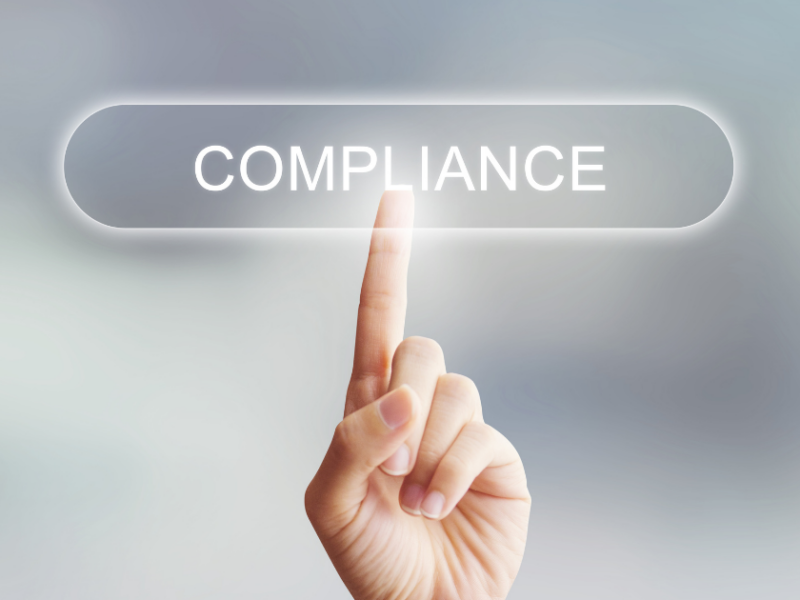In the dynamic landscape of data management, ensuring data integrity and governance is paramount for organizations striving to derive actionable insights and make informed decisions. At the heart of this endeavor lies the role of a Data Steward, a crucial guardian tasked with overseeing the quality, usability, and security of organizational data assets. In this comprehensive guide, we delve into the multifaceted responsibilities of a Data Steward, exploring their pivotal role in maintaining data integrity, driving compliance, and fostering a culture of data-driven decision-making within organizations.
Understanding the Role of a Data Steward: Defining Responsibilities and Scope
The role of a Data Steward is pivotal in modern data management practices, encompassing a diverse array of responsibilities and a broad scope of influence within organizations. At its core, a Data Steward is entrusted with safeguarding the integrity, quality, and security of organizational data assets throughout their lifecycle. This entails defining and enforcing data standards, policies, and best practices to ensure data consistency, accuracy, and completeness across disparate systems and processes. Additionally, Data Stewards play a crucial role in driving data governance initiatives, collaborating with stakeholders from various business units and IT teams to establish data governance frameworks, enforce regulatory compliance, and mitigate data-related risks. Beyond data governance, Data Stewards also serve as advocates for data literacy and awareness, educating users on data usage guidelines, promoting a culture of data-driven decision-making, and fostering a deep understanding of the value and implications of data within the organization.
In addition to their responsibilities in data governance and quality management, Data Stewards also play a vital role in facilitating collaboration and alignment between business and IT teams. By serving as liaisons between these often disparate groups, Data Stewards bridge the gap between technical complexities and business objectives, translating business requirements into actionable data management strategies and vice versa. This collaborative approach enables Data Stewards to identify opportunities for improving data processes, implementing data-driven solutions, and maximizing the value derived from organizational data assets. Furthermore, Data Stewards actively engage with stakeholders across the organization to understand their data needs, address data-related challenges, and ensure that data initiatives align with overarching business goals and objectives. Through their multifaceted responsibilities and strategic insights, Data Stewards play a critical role in driving organizational success in the era of data-driven decision-making.
Data Quality Management: Ensuring Accuracy, Consistency, and Completeness
Data Stewards serve as custodians of data quality within organizations, actively contributing to the management and maintenance of high-quality data assets. Firstly, they establish robust data quality frameworks by defining standards, policies, and procedures to govern data integrity and consistency. This involves collaborating with various stakeholders to understand their data needs and challenges, aligning data quality objectives with organizational goals, and ensuring compliance with regulatory requirements. Additionally, Data Stewards conduct thorough assessments of data quality, leveraging metrics and benchmarks to evaluate the accuracy, completeness, and relevance of data across different sources and systems.
Secondly, Data Stewards oversee the implementation of data quality improvement initiatives, working to address identified issues and discrepancies in the data. They design and execute data cleansing and enrichment processes, employing techniques such as data profiling, validation, and deduplication to enhance data accuracy and reliability. Furthermore, Data Stewards monitor ongoing data quality performance, establishing metrics and KPIs to track progress and measure the effectiveness of data quality efforts over time. By championing data quality best practices and fostering a culture of accountability and continuous improvement, Data Stewards play a vital role in ensuring that organizations can rely on trustworthy, high-quality data to support their strategic objectives and drive business success.
Data Governance and Compliance: Enforcing Policies and Regulatory Standards
Data Stewards are pivotal in establishing and maintaining robust data governance frameworks that ensure compliance with regulatory requirements and organizational policies. Firstly, they collaborate with stakeholders across departments to define data governance objectives, develop governance structures, and establish roles and responsibilities for data management. This involves creating policies and procedures for data access, usage, and security, as well as implementing mechanisms for data quality assurance and risk management. Data Stewards also play a key role in driving awareness and adherence to data governance principles, providing training and guidance to ensure that all stakeholders understand and comply with data governance standards.
Secondly, Data Stewards oversee the implementation of compliance initiatives, working to ensure that data practices align with relevant regulatory frameworks such as GDPR, HIPAA, SOX, and others. They conduct regular audits and assessments to monitor compliance with data protection regulations, identifying areas of non-compliance and implementing corrective measures as necessary. Additionally, Data Stewards liaise with legal and compliance teams to stay abreast of regulatory changes and updates, ensuring that data governance policies and practices remain up to date and effective. By promoting a culture of data governance and compliance throughout the organization, Data Stewards play a crucial role in mitigating risks, protecting sensitive information, and fostering trust in the organization’s data management practices.
Leveraging Technology Solutions: Tools and Platforms for Effective Data Stewardship
Here are some categories of tools and platforms that contribute to effective data stewardship:
- Metadata Management Tools: A metadata management platform is a software solution designed to capture, store, manage, and utilize metadata across an organization’s data ecosystem. Metadata encompasses information about data, such as its structure, definitions, relationships, and usage, which is critical for understanding, governing, and leveraging data assets effectively. These platforms provide capabilities for cataloging metadata from various sources, including databases, applications, files, and data warehouses, and enable users to search, browse, and analyze metadata to gain insights into data assets and their context. Additionally, metadata management platforms often support data lineage tracking, data quality assessment, and integration with other data management tools to facilitate data governance, data integration, and data analytics initiatives.
- Data Quality Management Tools: A data quality management platform is a software solution designed to assess, monitor, and improve the quality of an organization’s data assets. These platforms provide tools and functionalities to profile, cleanse, standardize, and enrich data, ensuring it meets predefined quality standards and requirements. They typically offer features such as data profiling to identify inconsistencies and anomalies, data cleansing to correct errors and duplicates, data standardization to ensure consistency across datasets, and data enrichment to enhance data with additional information. Data quality management platforms also enable organizations to define and enforce data quality rules, track data quality metrics, and establish workflows for data quality remediation processes. By addressing data quality issues, these platforms help organizations enhance data accuracy, reliability, and integrity, enabling better decision-making, compliance with regulations, and operational efficiency.
- Data Lineage Tools: A data lineage platform is a software solution designed to trace and document the journey of data as it moves through various systems, processes, and transformations within an organization’s data landscape. These platforms capture and visualize the lineage of data, showing its origins, paths, and destinations, as well as the transformations and dependencies it undergoes along the way. By providing visibility into the flow of data across different systems and processes, data lineage platforms help organizations understand the provenance and context of their data, identify data quality issues, assess the impact of changes, ensure regulatory compliance, and support data governance initiatives. Additionally, they enable users to track data lineage in real-time, analyze relationships between data elements, and troubleshoot issues related to data integration, data quality, and regulatory compliance.
These tools and platforms collectively support data stewardship efforts by providing capabilities for data governance, data quality management, metadata management, data cataloging, data lineage and data profiling. Organizations can leverage these tools to establish robust data stewardship practices and ensure the integrity, quality, and compliance of their data assets.
Conclusion
As organizations navigate the complexities of modern data ecosystems, the role of a Data Steward emerges as a linchpin for success. By championing data quality, governance, and collaboration across diverse stakeholders, Data Stewards play a pivotal role in shaping a data-driven culture and driving organizational excellence. As organizations continue to harness the power of data for strategic decision-making and innovation, the role of the Data Steward will remain indispensable, serving as a guardian of data integrity and a steward of organizational success.


